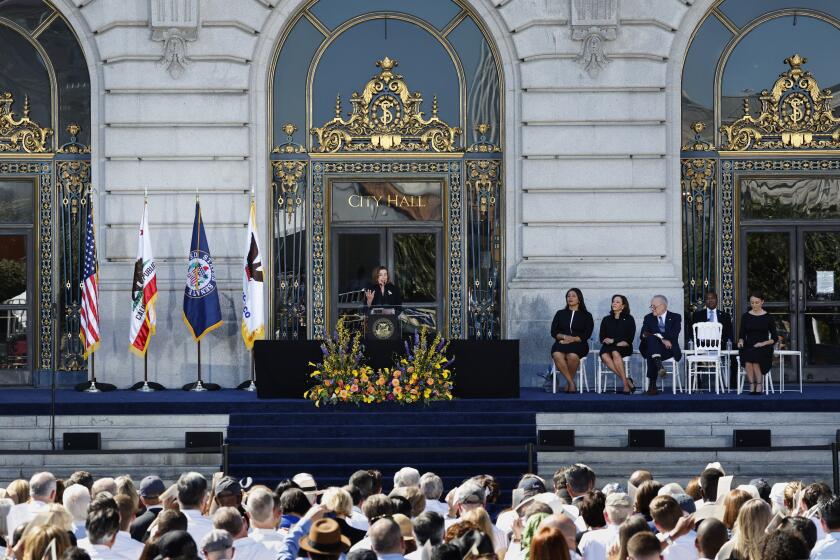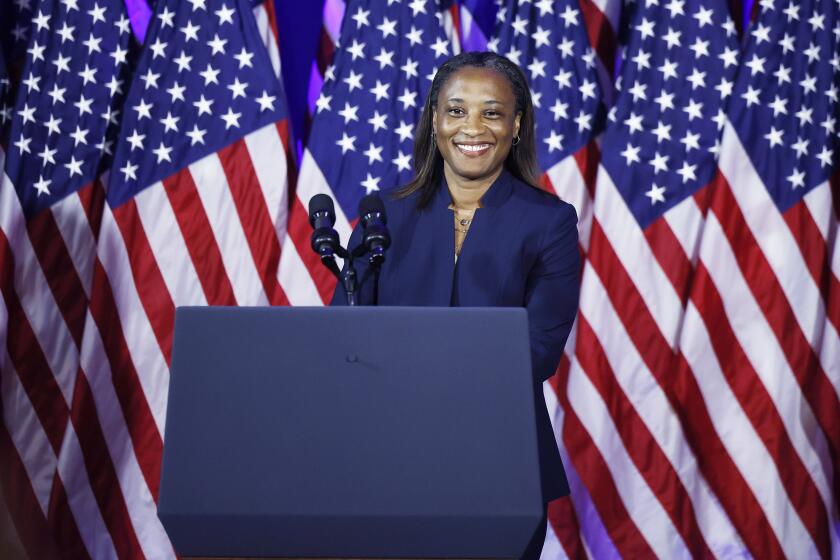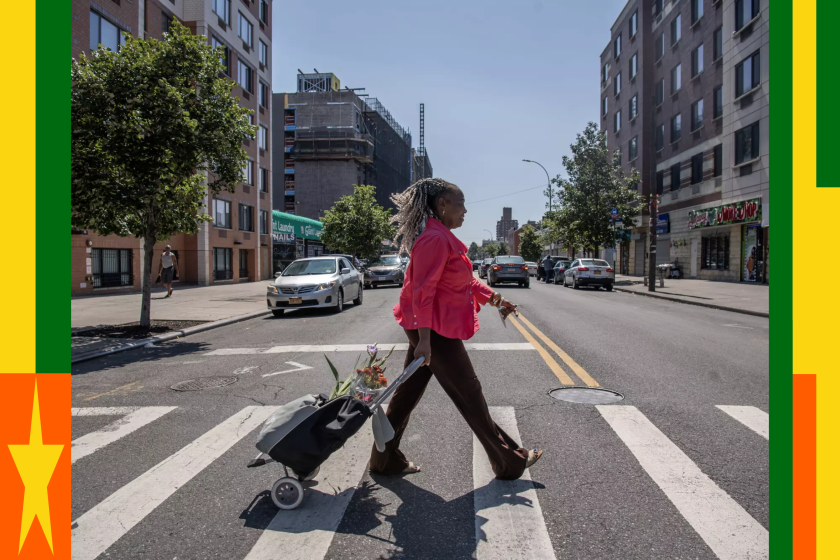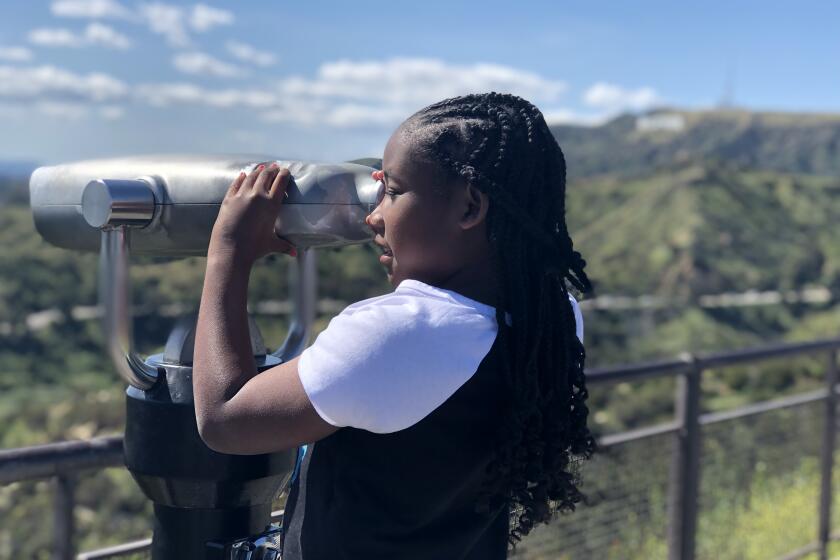Black Angelenos greet California’s new senator with delight, wariness and high expectations
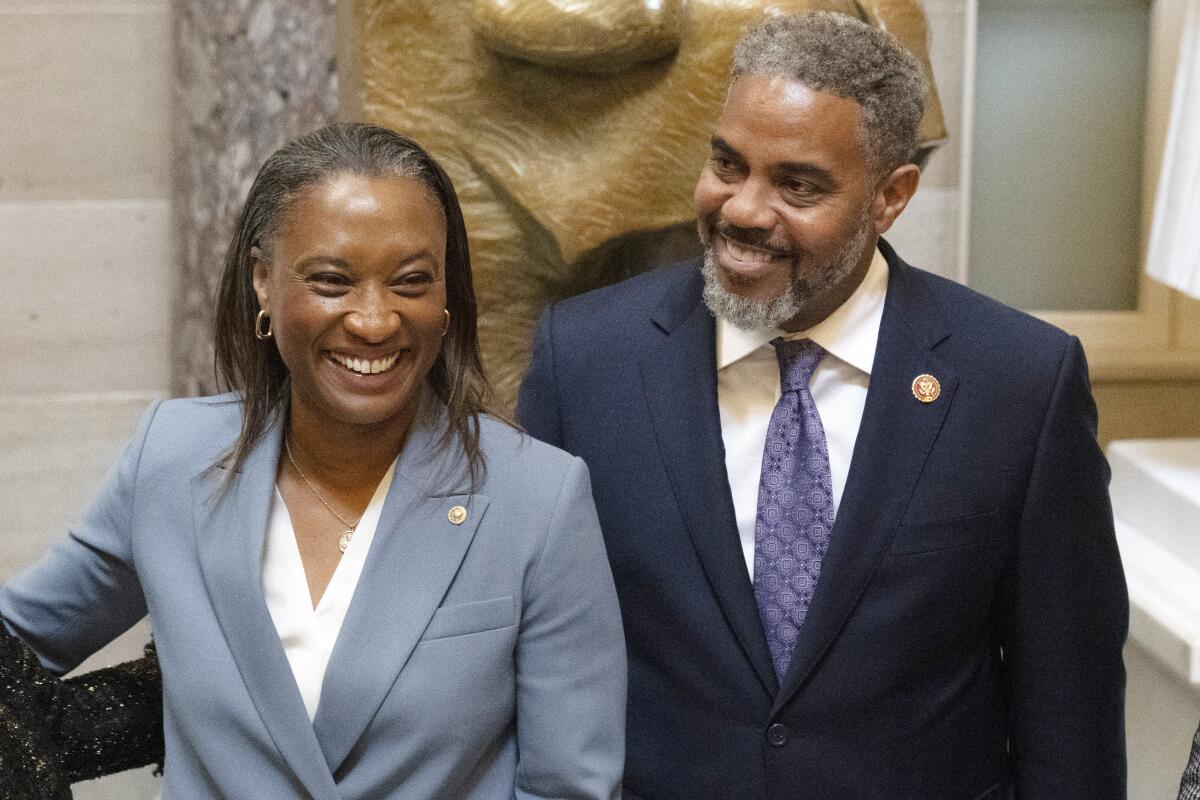
- Share via
Democrat Laphonza Butler was heralded as the nation’s third Black female senator when she was sworn in Tuesday to replace California Sen. Dianne Feinstein. She’s also the first out gay person of color to serve in the U.S. Senate.
Black Angelenos, many of whom feel a disconnect between themselves and elected leaders regardless of party, are torn about what it means for them.
While they celebrate Butler’s history-making appointment by Gov. Gavin Newsom, some wonder how Butler will succeed at helping Black Californians improve their lives where they believe others have fallen short.
“It shows that we’re being seen as Black women,” says Naomi Arena, 27, an actress, model and Christian YouTube personality who was running errands in downtown Los Angeles. “I love that.”
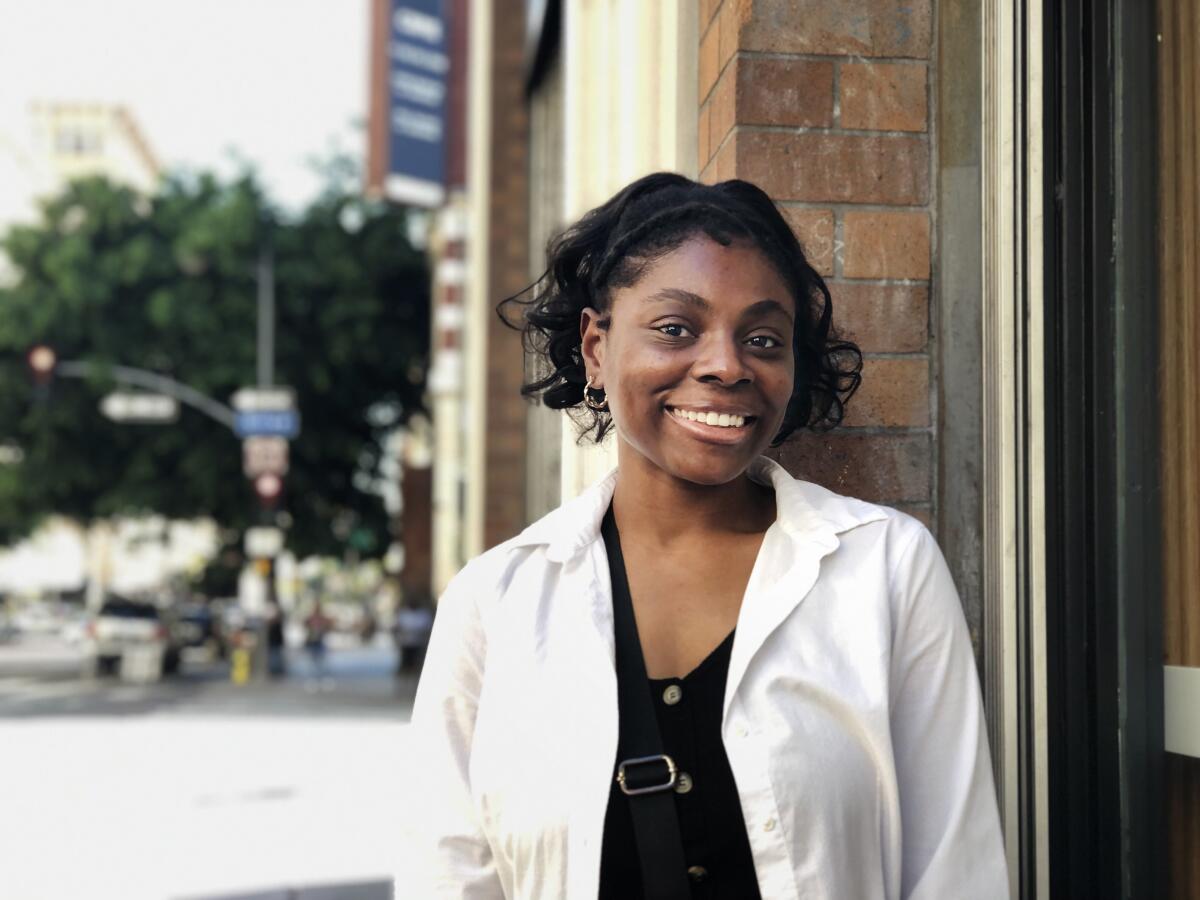
Sentiments like Arena’s contrast starkly with the conversation happening within the state’s Democratic Party.
All week, political insiders have speculated about why Newsom chose the relatively under-the-radar president of Emily’s List, the fundraising platform for pro-choice female politicians, to serve the remaining 15 months of Feinstein’s term. Newsom bypassed high-profile prospect Rep. Barbara Lee, also a Black woman, who had conspicuously lobbied for the job and received the backing of the Congressional Black Caucus.
Feinstein died on Sept. 29 at the age of 90 after holding that seat for three decades. With Butler as her temporary successor, Newsom has added a potential new face and even more drama to the 2024 race to determine who will win a coveted, full, six-year term as California’s junior senator. Lee is one of the contenders.
But ordinary Black Americans in Los Angeles either weren’t aware of the behind-the-scenes intrigue or didn’t seem to care.
Speakers scheduled to honor Feinstein included Vice President Kamala Harris and former House Speaker Nancy Pelosi.
Even with their reservations about politics, most were simply impressed that anyone who looks like them has joined the Senate, one of the whitest and most exclusive clubs in the nation where only 12 Black people have ever served. That list includes three Black women, among them Butler and Vice President Kamala Harris, the daughter of an Indian and a Jamaican, who swore in the new senator with Butler’s wife Neneki Lee at her side.
Alyssia Aliyy, 24, a server at the downtown Vietnamese restaurant Little Sister, was just finishing the hectic lunch rush. She, like Arena, hadn’t previously heard the news about Butler, but she was glad to know she had a reason to feel less jaded about politics.
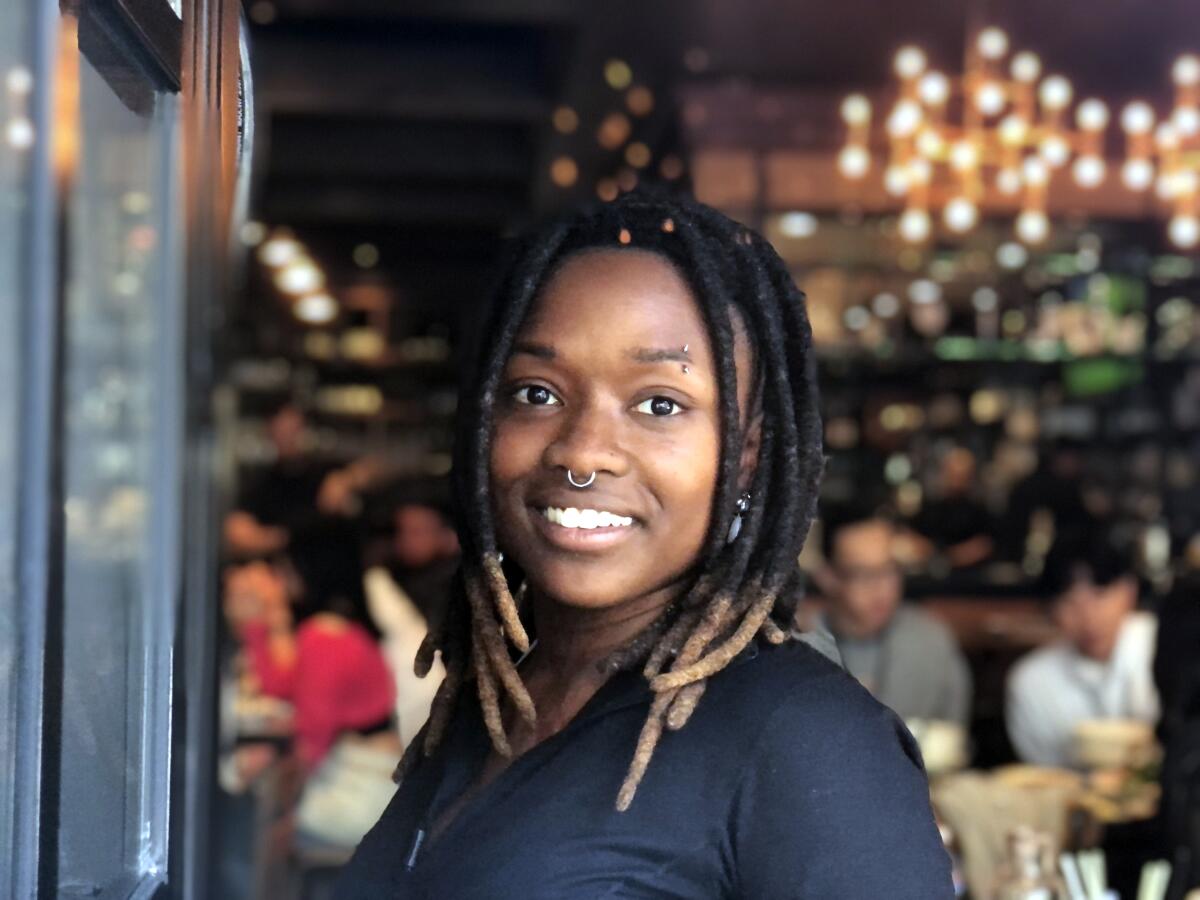
“Representation has always been the most important thing for me, but as a Black person in America, I have gotten let down one too many times,” Aliyy says. “I don’t really expect anything from this country, so to be proven wrong, in a little tiny way, that would go a long way.”
Given the 44-year-old Butler’s race, her status as the first lesbian of color in the U.S. Senate and her work as a labor leader for nursing home workers, janitors and security employees, the former L.A. resident can be a galvanizing force many times over, said Chadwick Davis, a screenwriter who was about to start his evening shift as a security guard.
Even though he works two jobs, the 33-year-old says he’s “still struggling.”
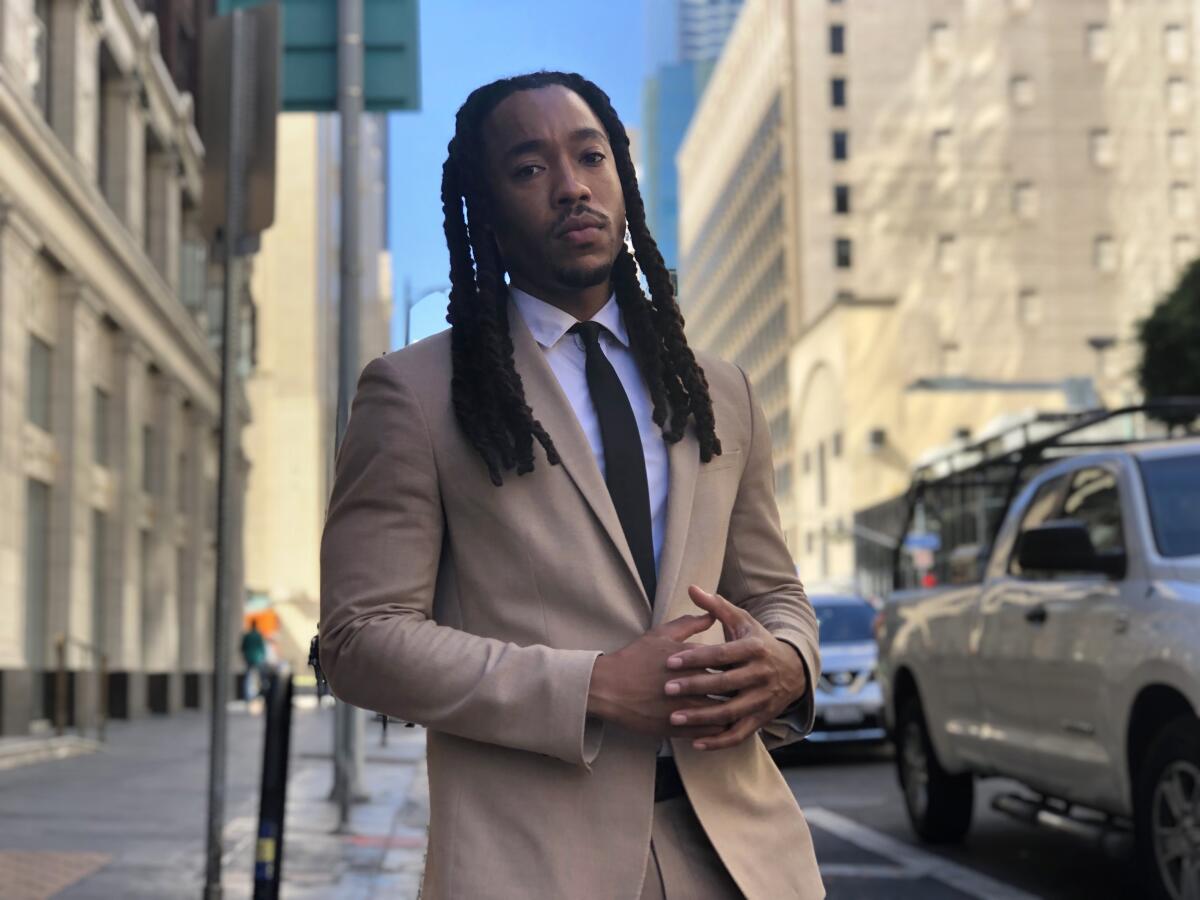
“We need somebody to see L.A. from our perspective and make change that will actually benefit the people that are low-income and middle class,” Davis says.
“Sometimes, the people that they put into these positions can’t relate to the Black community, or the queer community, and really know how it is to live in a city where you may feel like an outcast,” Davis says. “I hate to say it, but I feel like only a Black woman would know those things.”
This ambivalence — a mix of newfound optimism and dug-in pessimism — was shared by others in the historic heart of South L.A.’s Black community.
Most were too preoccupied about real-world issues to spend much time reveling in another Black American blazing trails: high gas prices, the soaring cost of housing, homelessness, the neglect of the city’s Black business districts. Black people in this part of the city say they have lots of reasons to sing the blues and doubt Democrats and Republicans alike.
Gov. Gavin Newsom appointed Laphonza Butler to fill the Senate seat that was held by Dianne Feinstein, who died Friday. Who is Butler?
The economic distress felt by many Black Angelenos is plain to see on the short drive along Crenshaw Boulevard between the Jefferson Park neighborhood and the shopping center that anchors Baldwin Hills. Storefronts that haven’t been renovated in years. A hot afternoon sun beating down on the beach umbrellas and tarps of makeshift homeless encampments. The thoroughfare is much in need of TLC, even as it is beloved, in its own way, by longtime residents.
Larry Campbell, 61, looks sharp in his red, white and blue button-down and thick-rimmed glasses as he takes a walk past sunbaked bungalows and cubic duplexes in Jefferson Park. He is proud to say that Marvin Gaye and other Black superstars once called this area home. But he hasn’t heard about Butler’s appointment either.
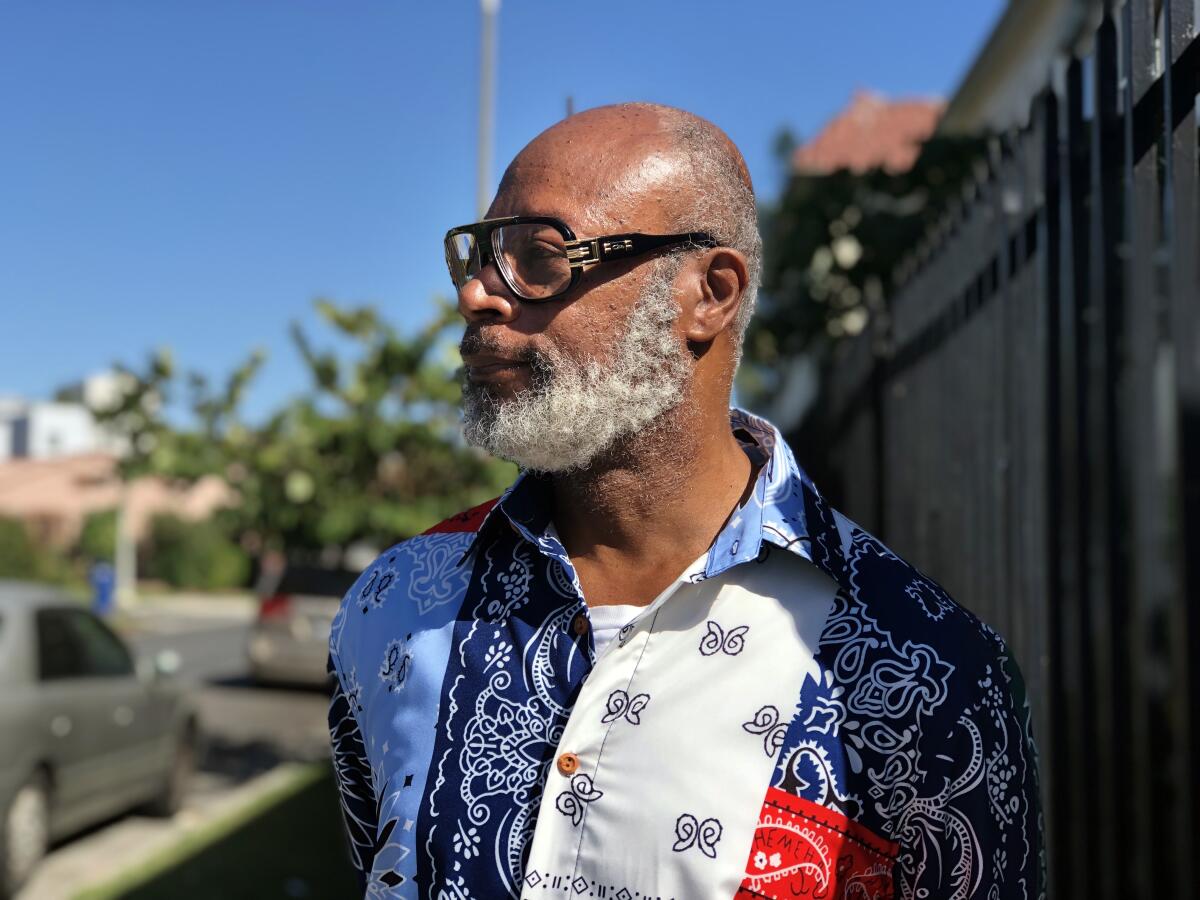
The retired Southern California Edison employee leans in close with his hand to his face, and says, “She’s got some big shoes to fill.”
When asked what issue he’d urge Butler to take up first on behalf of Black Californians, Campbell doesn’t hesitate to offer up two letters.
“A.H.,” he says. “Affordable housing.”
Jamaica native Winsome Pendergrass is part of a surge of immigrants from Africa and the Caribbean. She supports solidarity among Black Americans, but has been shunned in return.
The jadedness deepens and the list of needs only grows as you move farther south past streets named for Barack Obama and Martin Luther King Jr. At a junction called Freedom Square, Baldwin Hills Crenshaw Plaza feels like a ghost town, with only a smattering of people browsing in the mall and eating at its food court.
Latoya Hodson strolls past mostly dormant retail spaces in her Tupac Shakur T-shirt, her pink sunglasses propped on her curly hair. She’s heard the news about Butler and thinks it’s good in principle that Newsom kept his promise to choose a Black woman to fill Feinstein’s seat.
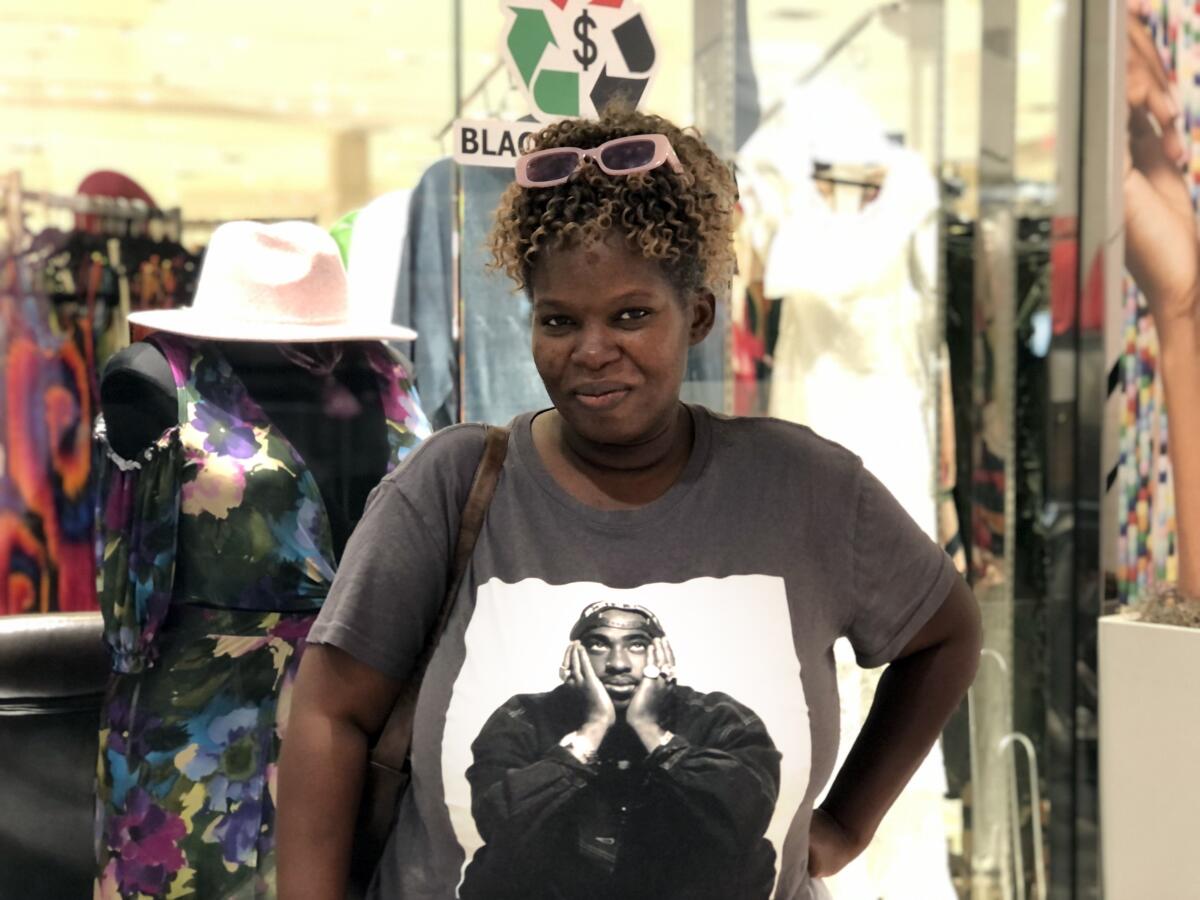
“But just because a person is Black doesn’t mean they’re for you, to be perfectly honest,” says Hodson, 46.
Hodson sounds exasperated.
“I don’t want the lip service,” she says. “We need to see some movement, especially in the Black community, but the Latino community too. We need better jobs. ... We need better training. We need something done for the young people because they don’t have things like we had. ... You need to get this homelessness under control.”
So many millions in tax dollars have been collected and spent to solve some of L.A.’s and the state’s social and economic problems, Hodson says. Looking around at the handful of shoppers and empty stores, and thinking about the people camped around the mall’s perimeter and the lack of places in her neighborhood to buy healthy food, she wonders what good all of that money did.
Inside one of the few open shops, Afro City Marketplace, owner Rwanda Ray sits at the front counter dressed in a floral-print robe and gold cowboy boots, with a huge ring in the shape of Africa adorning her left hand.
Ray, who grew up nearby and lives downtown, has money on her mind too — specifically how politicians in Washington can help her and other small businesspeople in this section of L.A. revive its commercial hubs.
Her own answer is to keep Black wealth in the Black community, or as she calls it, “recycling the Black dollar” — by leasing Black entrepreneurs space at affordable rates to sell their Afrocentric goods and services in her 9-month-old emporium.
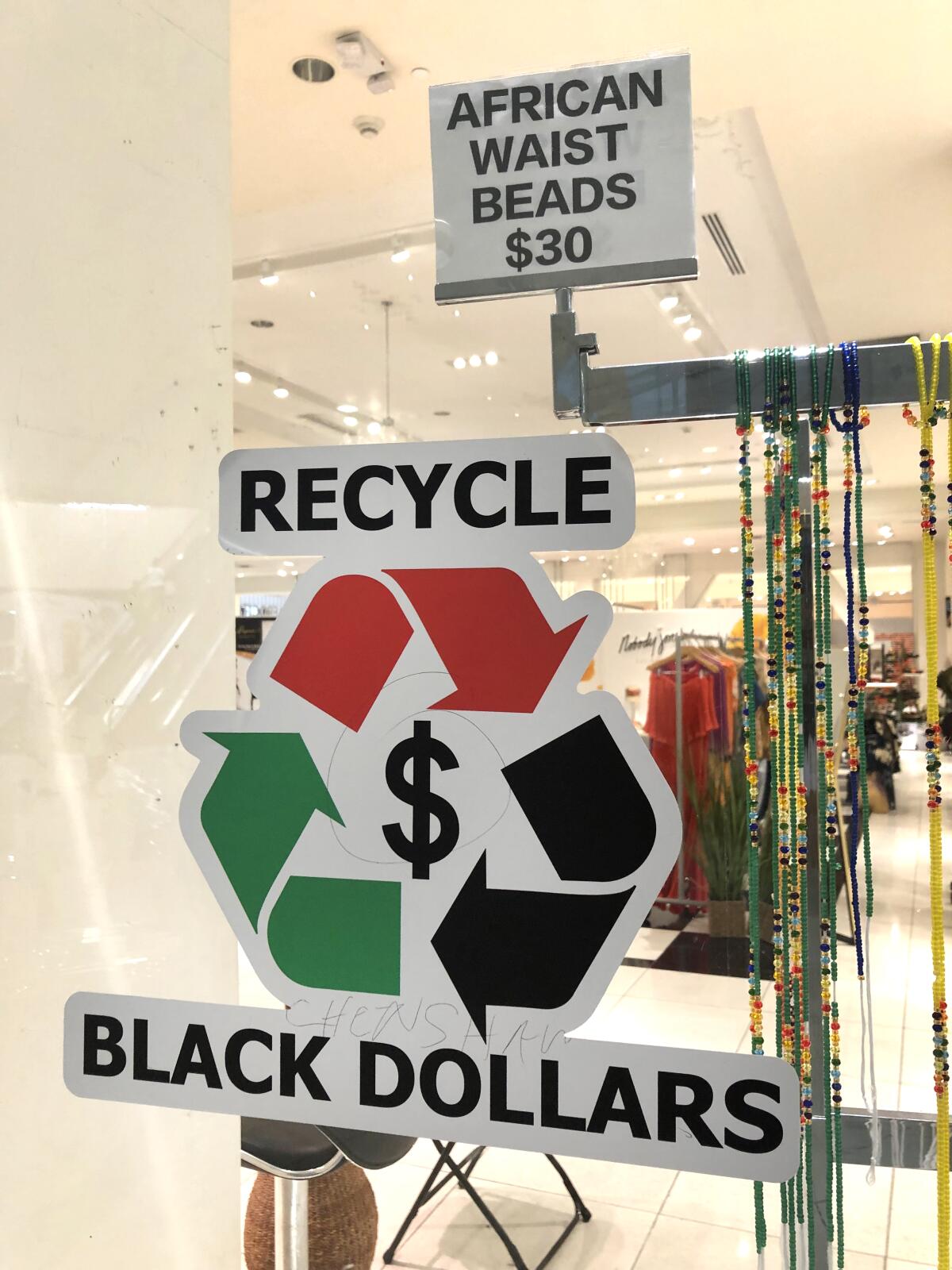
The 15,000-square-foot shop is a constellation of kiosks selling shea butter skin creams, handmade footwear, local art and jewelry, African print clothing and coffee from Cameroon. There’s also a headwrap bar where women can learn how to tie fabric into regal headpieces. Ray says she’s hosted yoga sessions and relationship workshops in the store and plans to start having tea parties and make the mall one of the stops for her touring Afrolicious Hair Expo.
Pomona native Victor Glover Jr.’s selection for NASA’s Artemis II moon mission isn’t just historic. His fellow Black Americans say it will change how the world sees them — and how they see themselves.
This is the kind of vision she wants Black politicians such as Butler to support in the form of programs that allow entrepreneurs in communities of color to start and expand their businesses.
“I would like her to represent the small guys and girls,” Ray says. “The small businessman and small businesswoman are very important to this community because they support Black families and help us maintain, and remain, in the community.”
Like other Black Angelenos, Ray says she’s inspired to learn more about Butler. And she’s willing to hold out hope that Butler, because of who she is and because the needs of the state’s Black community are so pressing, will be different.
As Hodson put it: “We have to see what she’s going to do.”
More to Read
Get the L.A. Times Politics newsletter
Deeply reported insights into legislation, politics and policy from Sacramento, Washington and beyond. In your inbox twice per week.
You may occasionally receive promotional content from the Los Angeles Times.
